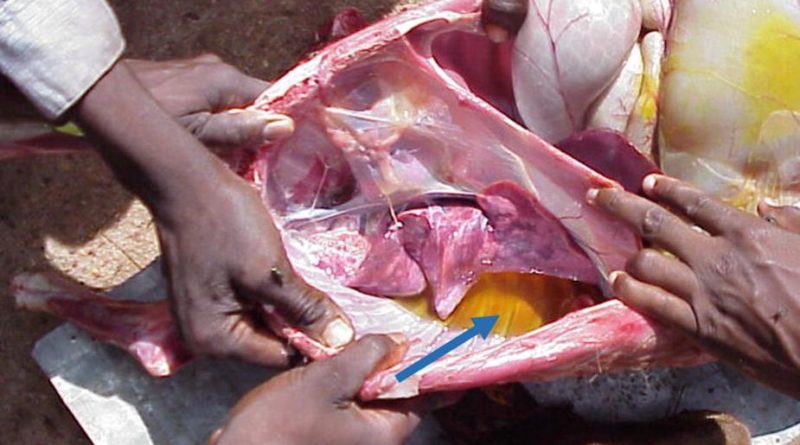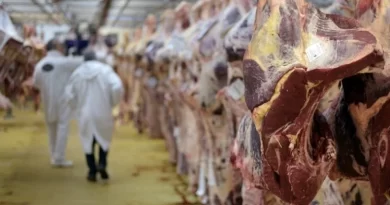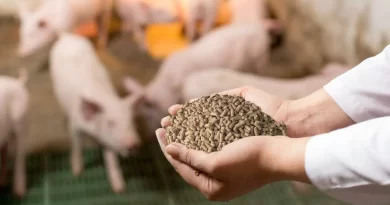Detecting, Preventing and Treating Heartwater in Sheep and Goats
Main Photo: Accumulation of the fluid in the heart sac and the thorax
by: media.springernature.com/
Heartwater is an infectious but noncontagious tick-borne disease of domestic and wild ruminants, including cattle, sheep, goats, antelope and buffalo.
It is a tickborne disease. The organisms that cause heartwater are called Ehrlichia ruminantium. The organisms are transmitted by Bont ticks, which are mainly found in hot, dry bush areas. Heartwater can result in death within 24 hours, but some cases survive 2 to 5 days. This means early detection and treatment is critical when it comes to treating Heartwater.
Symptoms include high temperature and nervous signs which include high stepping jerky gait, shivering, walking in circles which is where the names “chizeezee” and “chindeendee” come from. In later stages of the disease, infected animls become jerky, paddling movements with the legs and the head pulled backwards when the animal goes down.
The dead animal’s post mortem will show excessive fluid in the heart sac, lungs, chest and abdominal cavities.
Apart from pulpy kidney, Heartwater is another main cause of sudden death of sheep and goats.
In terms of treatment, administer short acting antibiotics such as oxytetracycline at 10 mg/kg/day, IM, or doxycycline at 2 mg/kg/day for 3 days. Success is higher if antibotics are administered early in the course of heartwater infection. A higher dosage of oxytetracycline (20 mg/kg) is usually required if treatment begins late during the febrile reaction or when clinical signs are evident.
For prevention increase frequency of dipping even during the dry season especially if you suspect contact between your herd and hosts whether domestic or wild.
Rotate grazing if possible to avoid contact with other hosts or your animlas picking ticks from the veld.
Make sure to dip newly acquired animals and quarantine them for the specified 30 days and follow due procedure. Share on X
You can also prevent by blocking method whereby you inject newly acquired animals with LA antibiotics as mentioned above on day 7, 14, 21 and 28. If your animals have been exposed you can also block them on day 1, 7, 14 and 21.
Please note that there is still debate going on regarding blocking as some feel this is overuse of antibiotics while farmers in infected areas find this the cheapest option since Heartwater vaccines are very expensive.



